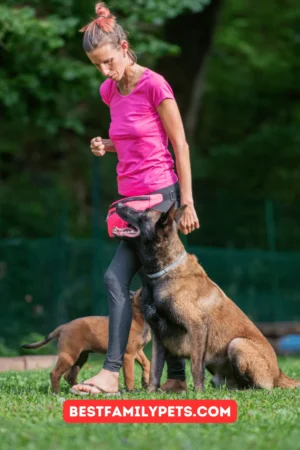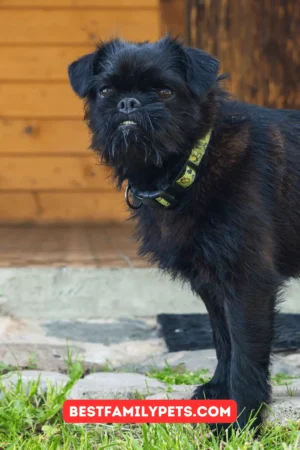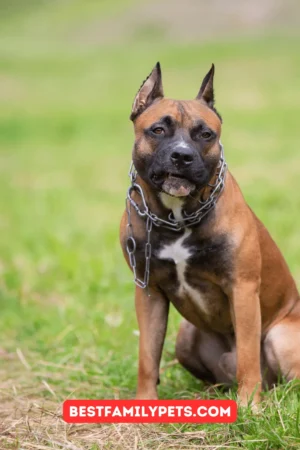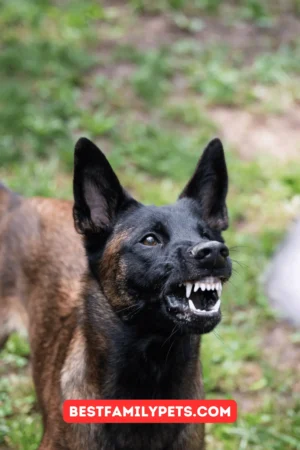Overview of Small Belgian Dog Breeds
Discover Belgian small dog breeds! Learn about the playful Schipperke, the charming Brussels Griffon, and more in this guide.
Belgium is home to a delightful variety of dog breeds, and several of them come in charmingly small packages. These pint-sized pups hold big personalities, making them captivating companions for many.
In this blog post, we’ll explore some of the most popular small Belgian dog breeds, highlighting their unique personalities, physical characteristics, and care requirements.
Table of Contents
Introduction to Small Belgian Dog Breeds
Belgium, a country famous for its chocolate, waffles, and historical landmarks, is also home to a diverse selection of dog breeds. While some, like the Belgian Shepherd, are known for their impressive size and working ability, others offer a smaller, yet equally captivating, companion. These small Belgian dog breeds, despite their size, boast distinct personalities, charming appearances, and a rich history.
1. Overview of Belgian Dog Breeds:
Belgium boasts a fascinating history of dog breeding, with each breed originally developed for specific purposes. From the Groenendael, bred to herd sheep, to the Malinois, known for their exceptional guard and detection skills, each breed possesses unique traits that reflect their heritage. However, within this diverse group lie several breeds that have captured hearts with their compact size and endearing qualities.
2. Importance of Small Dog Breeds:
For individuals living in apartments, smaller residences, or with active lifestyles, small dog breeds offer a perfect fit. These compact companions are well-suited to smaller living spaces and can easily adapt to on-the-go adventures. Additionally, they often require less exercise compared to their larger counterparts, making them suitable for those with busy schedules.
3. What Makes Belgian Dog Breeds Unique:
Beyond their manageable size, small Belgian dog breeds possess a unique charm that sets them apart. From the playful Schipperke, known for its foxy appearance and energetic personality, to the Brussels Griffon, with its distinctive “monkey face” and affectionate nature, these breeds offer a diverse range of personalities and appearances. Additionally, their rich history, often tied to specific regions and occupations within Belgium, adds another layer of depth and intrigue to these fascinating canine companions.
Whether you’re seeking a loyal and playful companion for your apartment or an energetic partner for your adventures, small Belgian dog breeds offer a wealth of possibilities. With their unique personalities, charming appearances, and fascinating history, these pint-sized pups are sure to capture your heart.
History and Origins of Small Belgian Dog Breeds
The captivating world of small Belgian dog breeds boasts not only unique personalities and appearances but also a rich and intriguing history. Understanding their origins and development sheds light on the purpose behind their creation and the role they played in shaping Belgian culture and society.
1. Historical Background of Belgian Dog Breeds:
The history of Belgian dog breeds stretches back centuries, with each breed originally developed to fulfill specific needs. During the Middle Ages, farmers and shepherds relied on sturdy, hardworking dogs like the Groenendael and Laekenois to manage their livestock. As Belgium transitioned into the industrial era, breeds like the Malinois emerged, prized for their intelligence and work ethic in guarding factories and assisting with transportation.
2. Development and Purpose of Each Breed:
Each small Belgian dog breed boasts a unique story tied to its development and purpose. For instance, the Schipperke, with its short, black coat, was originally bred to hunt rats in stables and on barges. The Brussels Griffon, with its distinctive “monkey face,” likely originated from a mix of local ratters and pugs, becoming popular companions among the Belgian upper class.
3. Role in Belgian Culture and Society:
These canine companions have played a significant role in Belgian culture and society for centuries. They were not merely working dogs but also valued companions, offering companionship and protection to families across various social classes. Today, these breeds continue to hold a special place in Belgian hearts, showcasing their diverse talents in various fields like herding, detection work, and even therapy roles.
Understanding the history and origins of small Belgian dog breeds allows us to appreciate the unique bond they share with their human counterparts. From their hardworking beginnings to their enduring popularity, these pint-sized companions continue to leave a paw print on both Belgian culture and the hearts of dog lovers worldwide.
Characteristics of Small Belgian Dog Breeds
Now that we’ve explored the rich history and diverse personalities of small Belgian dog breeds, let’s delve deeper into understanding their specific characteristics. This knowledge will help you determine if one of these charming pups is the perfect fit for your lifestyle.
1. Size and Weight Range:
Small Belgian dog breeds typically fall within a weight range of 4 to 10 kg (9 to 22 lbs) and stand between 20 to 33 cm (8 to 13 inches) tall at the shoulder. This compact size makes them well-suited for apartment living and allows them to adapt to various living situations. However, it’s important to remember that size variations can exist even within the same breed, so researching specific breeds is crucial.
2. Temperament and Personality Traits:
Despite their small stature, these breeds often pack big personalities. They are known for their intelligence, loyalty, and playful nature. However, individual personalities can vary depending on the breed. For example, the Brussels Griffon is known for its affectionate and cuddly nature, while the Schipperke is known for its energetic and independent spirit. Understanding the typical temperament of each breed will help you choose a companion that complements your lifestyle.
3. Exercise and Grooming Needs:
While generally requiring less exercise compared to larger breeds, small Belgian dogs still need regular physical activity to maintain their physical and mental well-being. Daily walks and playtime are essential, and some breeds may benefit from additional activities like agility training. Grooming needs also vary depending on the breed’s coat type. Some breeds, like the Griffon Bruxellois, have a rough coat that requires regular brushing and professional grooming, while others, like the Belgian Smoushond, have a harsher coat that requires stripping a few times a year.
By understanding the size, temperament, and care requirements of specific small Belgian dog breeds, you can make an informed decision about welcoming one of these charming companions into your life. Remember, each breed has its unique characteristics, so thorough research is key to finding the perfect furry friend for your home and lifestyle.
Popular Small Belgian Dog Breeds
The world of small Belgian dog breeds boasts several captivating options, each with its own distinct personality and appearance. While the four breeds listed above – the Belgian Malinois, Tervuren, Sheepdog (Groenendael), and Laekenois – are not technically considered “small” by most kennel clubs, they do offer a smaller size variation within the breed compared to their standard counterparts. Let’s explore these four popular breeds to get a glimpse into their unique characteristics:
- Belgian Malinois: While primarily known for their working ability in fields like police work and detection, the Malinois can also be a loving and loyal companion in the right home. Their intelligence and athleticism require experienced owners who can provide ample mental and physical stimulation.
- Belgian Tervuren: This longhaired beauty shares many similarities with the Malinois in terms of temperament and intelligence. However, the Tervuren tends to be slightly less intense and possesses a softer coat, making them potentially more suitable for first-time owners.
- Belgian Sheepdog (Groenendael): Often referred to simply as the “Groenendael,” this breed is instantly recognizable by its long, black coat. Known for their gentle and intelligent nature, Groenendaels excel in various activities, including obedience training and herding.
- Belgian Laekenois: The rarest of the four Belgian Shepherd varieties, the Laekenois boasts a unique rough coat and a playful, alert personality. They are loyal and affectionate companions but require consistent training and socialization due to their energetic nature.
Remember, these are just a few examples of the many captivating small Belgian dog breeds. Thorough research into each breed’s specific needs and characteristics is crucial before welcoming one of these furry friends into your life.
Finding Your Perfect Match: Choosing the Right Small Belgian Dog Breed
So, you’ve fallen in love with the charm and personality of small Belgian dog breeds? Before welcoming one of these furry friends into your life, it’s crucial to consider your lifestyle and individual needs to ensure a harmonious and fulfilling relationship.
1. Lifestyle Considerations:
Your living situation and daily routine play a significant role in determining the right breed for you. If you live in a small apartment, breeds like the Griffon Bruxellois or the Pug, known for their adaptability to smaller spaces, might be suitable options. Conversely, individuals with active lifestyles seeking a canine companion for adventures may find a good match in the energetic Schipperke or the playful Belgian Smoushond.
2. Activity Level and Energy Requirements:
Small Belgian dog breeds, while generally requiring less exercise than their larger counterparts, still have varying energy levels. Consider your own activity level. If you lead a relatively inactive lifestyle, breeds like the Brussels Griffon or the Belgian Laekenois, known for their lower energy demands, might be a better fit. However, if you enjoy daily walks, hikes, or jogs, breeds like the Schipperke or the Belgian Smoushond can keep pace with your active lifestyle.
3. Compatibility with Family and Other Pets:
If you have children or other pets in your household, it’s essential to choose a breed known for its good temperament and compatibility with families and other animals. The friendly and playful nature of the Brussels Griffon or the Belgian Pug makes them potential candidates for families with children, while the independent and alert personality of the Schipperke might be better suited for adult-only homes.
By carefully considering your lifestyle, activity level, and family dynamics, you can increase your chances of finding the perfect small Belgian dog breed that complements your life and becomes a cherished companion for years to come. Remember, responsible pet ownership requires research, commitment, and a genuine desire to provide your furry friend with a loving and fulfilling life.
Training and Socialization Tips for Small Belgian Dog Breeds
Welcoming a small Belgian dog breed into your life brings immense joy and companionship. However, to ensure a happy and well-adjusted canine companion, proper training and socialization are crucial from the very beginning.
1. Importance of Early Training and Socialization:
Early training and socialization are essential for shaping your pup’s behavior and developing a well-rounded personality. Starting training during the puppyhood window (typically between 8-16 weeks) allows you to establish basic commands, good manners, and positive associations with various experiences. Additionally, proper socialization exposes your puppy to different people, animals, sounds, and environments, helping them become confident and adaptable individuals.
2. Positive Reinforcement Techniques:
Positive reinforcement training methods, which reward desired behaviors with treats, praise, or playtime, are highly recommended for small Belgian dog breeds. These breeds are known for their intelligence and eagerness to please, making them responsive to positive reinforcement techniques. Avoid harsh punishments or yelling, as these can damage the bond you share with your furry friend and hinder their learning process.
3. Addressing Specific Breed Traits and Behaviors:
While small Belgian dog breeds share some commonalities, each breed also possesses unique traits and potential behavioral tendencies. For example, the Schipperke’s independent nature may require consistent training and firm boundaries to prevent stubbornness, while the Brussels Griffon’s playful energy might benefit from engaging activities to keep them mentally stimulated. Researching your specific breed’s characteristics and addressing potential challenges proactively will help you establish a successful training and socialization plan.
By dedicating time and effort to early training and socialization, you can nurture a happy, well-behaved, and confident companion in your small Belgian dog breed. Remember, consistency, patience, and positive reinforcement are key ingredients for building a strong and lasting bond with your furry friend.
Health and Care for Small Belgian Dog Breeds
Small Belgian dog breeds, like any canine companion, require specific care and attention to maintain optimal health and well-being. Understanding their common health concerns, proper grooming practices, and appropriate dietary needs will ensure your furry friend enjoys a long and healthy life.
1. Common Health Issues and Concerns:
While generally healthy breeds, some small Belgian dog breeds are prone to certain health conditions. It’s important to be aware of potential concerns specific to your chosen breed. For example, the Pug’s brachycephalic (short-faced) features can lead to breathing difficulties, while the Griffon Bruxellois may be susceptible to eye issues. Regular consultations with your veterinarian and preventive care measures are crucial for early detection and management of any potential health concerns.
2. Regular Grooming and Hygiene Practices:
Grooming needs vary depending on the breed’s coat type. Breeds like the Brussels Griffon require regular brushing and professional grooming to maintain their rough coat, while the smooth-coated Schipperke may only need occasional brushing. Regardless of the coat type, regular ear cleaning, nail trimming, and dental hygiene practices are essential for maintaining overall health and preventing potential issues.
3. Nutritional Needs and Dietary Considerations:
Providing your small Belgian dog breed with a high-quality, age-appropriate diet is crucial for their health and development. Consult your veterinarian to determine the best dietary plan for your individual dog, considering factors like age, activity level, and any specific health conditions. Be mindful of portion control to avoid overfeeding, which can lead to obesity and related health problems.
By staying informed about potential health concerns, implementing regular grooming practices, and providing a balanced diet, you can contribute significantly to the health and well-being of your small Belgian dog breed. Remember, a proactive approach to their care goes a long way in ensuring they live a happy and fulfilling life by your side.
Small Belgian Dog Breeds in Pop Culture and Media
While not as ubiquitous as some other breeds, small Belgian dog breeds have occasionally captured the hearts of audiences through their appearances in movies and television shows. These charming canine companions have added a touch of personality and sometimes even humor to various forms of entertainment.
1. Examples of Belgian Dog Breeds in Movies and TV Shows:
- Brussels Griffon: Perhaps the most well-known example is the iconic Brussels Griffon, Georgette, from the Disney animated film “The Aristocats.” This sassy and independent character showcased some of the breed’s signature traits and undoubtedly contributed to its popularity.
- Schipperke: The energetic Schipperke has also made its mark on the silver screen, appearing in films like “The Adventures of Milo and Otis” and “The Duchess.” These portrayals often highlight the breed’s playful and alert nature.
2. Influence on Popular Culture and Perceptions:
While their appearances in pop culture might not be frequent, these small Belgian dog breeds can leave a lasting impression. Their unique appearances and personalities can spark curiosity and appreciation for these lesser-known breeds, potentially influencing potential pet owners and contributing to the breed’s overall perception.
It’s important to remember that these portrayals are just fictional representations, and individual dogs within any breed can vary significantly in personality and temperament. Responsible pet ownership requires thorough research into the specific needs and characteristics of your chosen breed to ensure a harmonious and fulfilling relationship.
Despite their limited presence in pop culture, small Belgian dog breeds continue to steal the hearts of many with their unique charm and captivating personalities. Whether you encounter them on screen or in your own neighborhood, these delightful companions offer a reminder of the diverse and captivating world of canine companions waiting to be discovered.
Final Words
As we conclude our exploration of the captivating world of small Belgian dog breeds, let’s revisit some key points that highlight their unique appeal:
- Diverse Personalities: From the playful and energetic Schipperke to the affectionate and cuddly Brussels Griffon, these breeds offer a diverse range of personalities to suit various lifestyles.
- Manageable Size: Their compact size makes them well-suited for apartment living and individuals with active lifestyles.
- Rich History and Legacy: Each breed boasts a fascinating history, offering a glimpse into the cultural and societal roles they played in Belgium.
- Trainable and Intelligent: With dedication and positive reinforcement training, these intelligent dogs can become well-behaved and cherished companions.
- Unique Charm and Appearance: Their distinctive features and personalities contribute to their undeniable charm, captivating the hearts of many.
Owning any dog is a significant commitment, and choosing the right breed is crucial for both you and your furry friend. If you’re seeking a loyal, intelligent, and captivating companion in a compact package, a small Belgian dog breed might be the perfect match for you. Remember, responsible pet ownership requires research, commitment, and a genuine love for animals. With proper care and attention, one of these charming Belgian companions can enrich your life with unconditional love, loyalty, and a lifetime of unforgettable memories.










